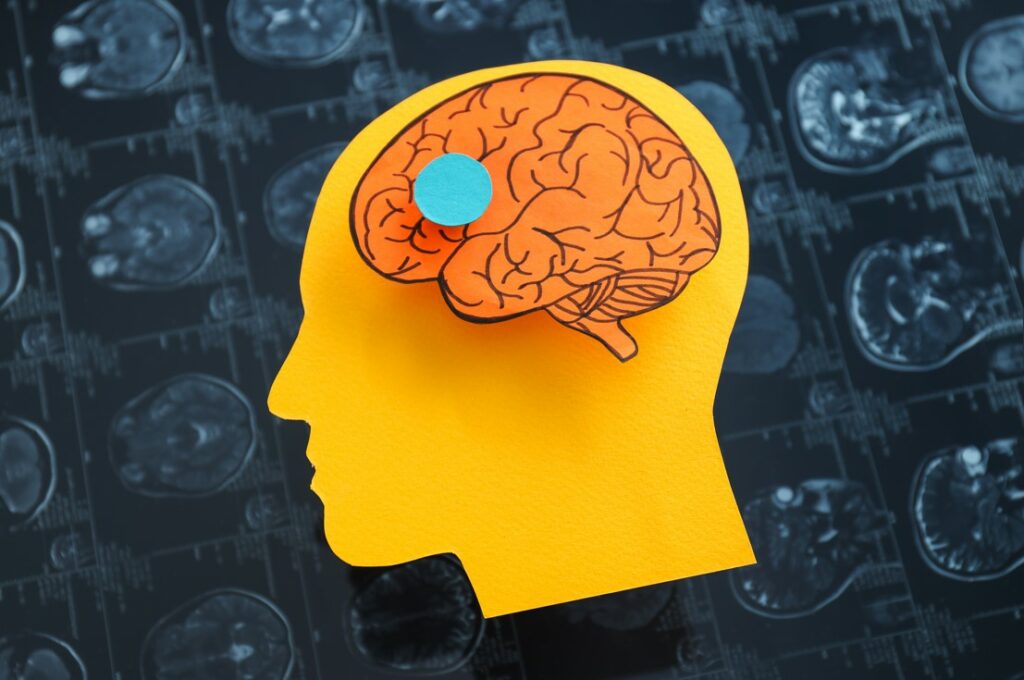
Imagine a life brimming with experiences, shared moments, and memories that have shaped your identity over the years. Now, picture those memories slowly fading away, as if being erased from a chalkboard. This is the reality for many seniors and their loved ones facing the challenge of dementia.
The term “senior” conjures images of wisdom, experience, and a life well-lived. However, for some of our elderly loved ones, the passage of time brings an additional burden: dementia. This term encompasses a variety of cognitive disorders that affect memory, thinking, and behavior. It’s a complex challenge that impacts not only those experiencing it but also their families and caregivers.
Defining Dementia: Dementia is a broad term used to describe a group of cognitive disorders that affect memory, thinking, and behavior. It’s not a specific disease but rather a syndrome resulting from various underlying causes.
Impact on Seniors: As individuals age, the risk of developing dementia increases. It’s a significant concern for seniors and their families, as it can profoundly impact their quality of life and independence.
Discover How Legacy Ridge at Buckhead Supports Families and Loved Ones Living with Dementia
At Legacy Ridge at Buckhead in Kennesaw, Georgia, we celebrate the lives of each of our memory care residents daily with passionate care, robust Alzheimer’s and/or dementia-specific programming, and a secure environment. Our services are designed to provide comprehensive support tailored to meet the unique needs of each resident. From licensed nurses available 24/7 to emergency response systems and specialized memory care associates, we prioritize the safety and well-being of our residents. Additionally, our community offers a range of amenities and activities to promote physical, emotional, and cognitive well-being, including brain fitness and memory enhancement programming, fitness and wellness activities, and plentiful activities, events, and live entertainment. Families can rest assured knowing that their loved ones receive individualized care through our signature program SPIRIT, along with friendly concierge services and chef-inspired meals with flexible options. To learn more about how Legacy Ridge at Buckhead can support your family and your loved one with dementia, click here to take our quiz and explore our memory care services further.
Focus on Alzheimer's Disease: Understanding the Most Common Type of Dementia
Symptoms of Alzheimer’s Disease:
Alzheimer’s disease is a progressive neurodegenerative disorder that primarily affects memory, thinking, and behavior. In the early stages, individuals may experience mild symptoms such as forgetfulness and difficulty finding words. As the disease advances, symptoms become more severe and may include:
- Memory Loss: Forgetfulness that disrupts daily life, including forgetting important dates, events, or recently learned information.
- Difficulty with Language and Communication: Struggling to find the right words, following or joining a conversation, or repeating oneself frequently.
- Impaired Judgment and Decision-Making: Making poor decisions, such as giving large sums of money to telemarketers, or having difficulty managing finances.
- Disorientation and Confusion: Getting lost in familiar places, experiencing confusion about time, people, or places, and difficulty understanding spatial relationships.
- Changes in Mood and Behavior: Mood swings, increased apathy or disinterest, irritability, agitation, or aggression.
- Loss of Initiative: Decreased motivation to engage in activities or hobbies once enjoyed, social withdrawal, and a decline in personal hygiene.
Causes of Alzheimer’s Disease:
The exact cause of Alzheimer’s disease is not fully understood, but it is believed to result from a combination of genetic, environmental, and lifestyle factors. Genetic mutations, particularly in genes such as the amyloid precursor protein (APP), presenilin 1 (PSEN1), and presenilin 2 (PSEN2), are associated with the development of early-onset Alzheimer’s disease. However, late-onset Alzheimer’s disease, which is more common, is influenced by complex interactions between genetic and environmental factors, including age, family history, head trauma, cardiovascular health, and lifestyle choices such as diet and exercise.
Available Treatments for Alzheimer’s Disease:
While there is currently no cure for Alzheimer’s disease, several treatment options are available to help manage symptoms and improve quality of life for affected individuals. These treatments may include:
- Medications: Cholinesterase inhibitors, such as donepezil, rivastigmine, and galantamine, are commonly prescribed to improve cognitive function and manage symptoms of Alzheimer’s disease. Another medication, memantine, may be used to help regulate glutamate activity in the brain and improve memory and cognition.
- Non-Pharmacological Interventions: Non-pharmacological interventions, such as cognitive stimulation therapy, reminiscence therapy, and physical exercise, can help improve cognitive function, enhance mood, and promote overall well-being in individuals with Alzheimer’s disease.
- Supportive Care: Supportive care, including assistance with daily activities, social engagement, and emotional support for both individuals with Alzheimer’s disease and their caregivers, is essential for managing the challenges associated with the condition.
- Clinical Trials: Participation in clinical trials investigating potential new treatments and therapies for Alzheimer’s disease may also be an option for some individuals. Clinical trials offer opportunities to access cutting-edge treatments and contribute to the advancement of scientific knowledge about the disease.
In conclusion, Alzheimer’s disease is a complex and devastating condition that affects millions of individuals worldwide. By understanding its symptoms, causes, and available treatments, we can better support those affected by the disease and work towards finding a cure. Ongoing research efforts and increased awareness are essential in the fight against Alzheimer’s disease.
Vascular Dementia: Understanding a Significant Form of Cognitive Decline
Unveiling Vascular Dementia: An Overview
Vascular dementia stands as a noteworthy form of cognitive impairment among seniors, representing a substantial proportion of dementia cases within this demographic. This subtype of dementia is closely associated with vascular changes in the brain, highlighting the critical interplay between circulatory health and cognitive function.
Exploring the Relationship Between Vascular Dementia and Circulatory Health
Vascular dementia arises from impaired blood flow to the brain, often stemming from conditions such as strokes, small vessel disease, or other vascular abnormalities. These circulatory disruptions can lead to the development of vascular lesions, infarcts, or other structural changes in the brain, resulting in cognitive decline and associated symptoms.
Understanding the Impact on Cognitive Function
The effects of vascular dementia on cognitive function can vary widely depending on the location, extent, and severity of vascular lesions in the brain. Individuals with vascular dementia may experience deficits in various cognitive domains, including:
- Memory: Impaired recall of recent events or difficulty retaining new information.
- Executive Functioning: Challenges in planning, problem-solving, and executing tasks requiring cognitive flexibility and judgment.
- Attention and Concentration: Difficulty maintaining focus, sustaining attention, or processing information efficiently.
- Language and Communication: Struggles with verbal fluency, comprehension, and expressive language abilities.
- Recognizing the Complexity of Vascular Dementia
Vascular dementia often presents with a combination of cognitive deficits, which may overlap with symptoms of other forms of dementia, such as Alzheimer’s disease. Additionally, individuals with vascular dementia may exhibit neurological symptoms consistent with the underlying vascular pathology, such as motor impairments or sensory deficits.
Addressing Challenges and Treatment Approaches
Management of vascular dementia involves addressing underlying vascular risk factors, optimizing circulatory health, and implementing strategies to support cognitive function and overall well-being. Treatment modalities may include:
- Lifestyle Modifications: Encouraging healthy lifestyle habits, such as regular exercise, a balanced diet, smoking cessation, and blood pressure management, to mitigate vascular risk factors and promote brain health.
- Medication: Depending on individual circumstances, medications may be prescribed to manage vascular risk factors, such as hypertension, hyperlipidemia, or diabetes, and improve overall vascular health.
- Rehabilitative Interventions: Rehabilitation programs focusing on cognitive training, physical therapy, occupational therapy, and speech-language therapy can help individuals with vascular dementia maximize their functional independence and quality of life.
In conclusion, vascular dementia represents a significant and multifaceted form of cognitive decline, intricately linked to vascular health and circulatory function. By understanding its pathophysiology, clinical manifestations, and treatment approaches, we can better support individuals affected by vascular dementia and strive for improved outcomes and quality of life.

Dementia with Lewy Bodies: Shedding Light on a Critical yet Underrecognized Form
Understanding Dementia with Lewy Bodies: An Introduction
Dementia with Lewy bodies (DLB) emerges as a significant yet often overlooked subtype of dementia, exerting a profound impact on affected individuals and their caregivers. This form of dementia is characterized by the presence of abnormal protein deposits, known as Lewy bodies, in the brain’s nerve cells, leading to a distinctive clinical profile and a range of challenging symptoms.
Highlighting Unique Symptoms and Clinical Features
DLB presents a constellation of symptoms that distinguish it from other forms of dementia, including:
- Visual Hallucinations: Individuals with DLB commonly experience vivid and detailed visual hallucinations, which may involve seeing people, animals, or objects that are not present.
- Fluctuations in Mental Status: Fluctuations in cognitive function, attention, and alertness are hallmark features of DLB, with individuals experiencing periods of lucidity interspersed with episodes of confusion or disorientation.
- Parkinsonism: Motor symptoms resembling those of Parkinson’s disease, such as tremors, rigidity, bradykinesia (slowed movement), and postural instability, are often observed in individuals with DLB.
- REM Sleep Behavior Disorder (RBD): RBD, characterized by vivid and often violent movements during REM sleep, is commonly associated with DLB and may precede the onset of cognitive symptoms.
Navigating Diagnosis and Treatment Challenges
Diagnosing DLB can be challenging due to its overlapping symptoms with other neurodegenerative disorders, such as Parkinson’s disease and Alzheimer’s disease. A comprehensive evaluation by a multidisciplinary team, including neurologists, psychiatrists, and neuropsychologists, is essential for accurate diagnosis and appropriate management.
Treatment of DLB focuses on symptom management, cognitive support, and optimizing quality of life. Strategies may include:
- Medication Management: Medications targeting cognitive symptoms, such as acetylcholinesterase inhibitors, may help improve cognitive function and alleviate behavioral symptoms in some individuals with DLB.
- Symptom-Specific Interventions: Addressing visual hallucinations, fluctuations in mental status, sleep disturbances, and motor symptoms may require a tailored approach, involving pharmacological and non-pharmacological interventions.
- Supportive Care and Psychosocial Interventions: Providing emotional support, education, and practical assistance to individuals with DLB and their caregivers is essential for navigating the challenges associated with the condition.
In summary, dementia with Lewy bodies represents a distinct and clinically complex form of dementia, characterized by unique symptoms and clinical features. By increasing awareness, advancing diagnostic capabilities, and implementing evidence-based treatment strategies, we can enhance outcomes and quality of life for individuals living with DLB and their families.
Exploring the Diversity of Dementia in Seniors: Unraveling Less Common Forms
Introduction to Less Common Forms of Dementia
While Alzheimer’s disease and vascular dementia dominate discussions surrounding cognitive decline in seniors, it’s crucial to acknowledge the existence of other, less common forms of dementia. These conditions, although less prevalent, pose unique challenges and complexities that warrant attention and understanding within the realm of geriatric care.
Frontotemporal Dementia: Understanding the Impact on Behavior and Language
Frontotemporal dementia (FTD), also known as frontotemporal lobar degeneration, encompasses a group of disorders characterized by progressive damage to the frontal and temporal lobes of the brain. Unlike Alzheimer’s disease, FTD primarily affects personality, behavior, and language, leading to changes in social conduct, emotional regulation, and speech and language abilities.
- Behavioral Variant Frontotemporal Dementia (bvFTD): Individuals with bvFTD may exhibit disinhibited, impulsive, or socially inappropriate behavior, along with apathy, loss of empathy, and changes in dietary preferences. These behavioral changes can significantly impact interpersonal relationships and daily functioning.
- Primary Progressive Aphasia (PPA): PPA manifests as a progressive impairment in language abilities, affecting speech production, comprehension, or word-finding skills. Individuals with PPA may struggle to express themselves verbally, comprehend spoken or written language, or engage in meaningful communication.
Mixed Dementia: Navigating the Intersection of Multiple Pathologies
Mixed dementia refers to the coexistence of multiple types of dementia pathology in the brain, most commonly Alzheimer’s disease pathology and vascular pathology. This convergence of neuropathological processes results in a complex clinical presentation, with individuals exhibiting symptoms consistent with both Alzheimer’s disease and vascular dementia.
- Clinical Challenges: Diagnosing mixed dementia presents significant challenges due to overlapping symptoms and neuropathological features. Clinicians must carefully assess cognitive, motor, and behavioral symptoms, along with neuroimaging and biomarker findings, to differentiate mixed dementia from other conditions.
- Treatment Considerations: Managing mixed dementia involves addressing both Alzheimer’s disease and vascular risk factors, optimizing cognitive function, and providing tailored interventions to address specific symptomatology. A multidisciplinary approach, involving neurologists, geriatricians, neuropsychologists, and other specialists, is essential for comprehensive care.
Impact on Mental Health and Quality of Life
The diverse manifestations of less common forms of dementia underscore the profound impact of these conditions on mental health and overall well-being in seniors. Individuals living with frontotemporal dementia, mixed dementia, and other rare subtypes may experience profound changes in mood, behavior, and interpersonal relationships, challenging their sense of identity and autonomy.
In conclusion, recognizing and understanding the diversity of dementia in seniors is paramount for delivering comprehensive and person-centered care. By acknowledging the unique characteristics and challenges associated with less common forms of dementia, we can enhance diagnostic accuracy, tailor interventions to individual needs, and promote holistic well-being for seniors living with cognitive decline.








